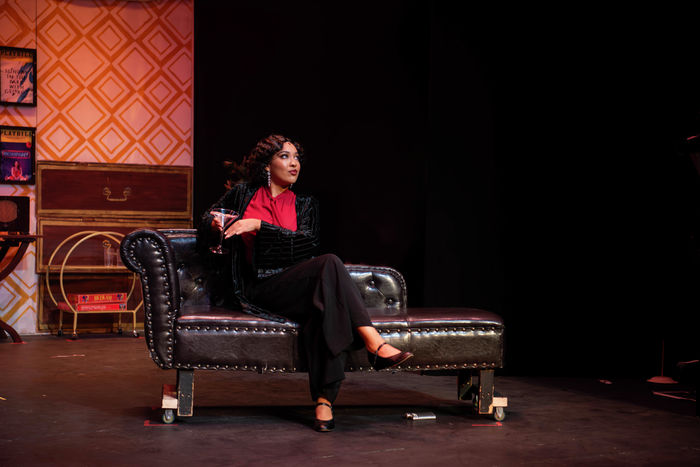A Profession of Faith is a work in progress
Beatrice Coulter remains in the dark after futile light was cast on some provocative questions

A Profession of faith is a new play by Jacinta Ngeh, centring around a talented, Catholic surgeon whose skill has insulated him from the possibility that a patient does not always get better. However, one day, he comes across a patient that he cannot save. It is an unofficial sequel to last year’s Greater than Ourselves and in many ways falls prey to many of that play’s mistakes.
“Tackles moral questions and establishes several nuanced character portraits”
Firstly, the script seems to be both too long and too short. The pacing, particularly in the second half, was off, as it really started to drag on; it needs a good edit, as several characters and scenes feel tacked on. On the other hand, the play tackles moral questions and establishes several nuanced character portraits although it doesn’t seem to have sufficient run time to deal with or develop them in much detail. For example, Rob’s mother appears twice in the play and does not really seem to add much to the production. Likewise, the central moral question of whether it was ethical to operate on a patient to whom you have a tenuous link was neither properly set up, nor was it developed or explored in any meaningful way. Also, the use of faith, particularly Catholicism, in the show felt confused, it was placed at the heart of the narrative but was never meaningfully interrogated. This is not to say that the script needed an interrogation on god’s existence, but rather, it needed to explore what unique answers religion, particularly Catholicism, can provide to anyone struggling with death. Given how crucial Catholicism is to the play, to have not explored these central questions felt like a missed opportunity.
“To have not explored these central questions felt like a missed opportunity”
This was not helped by a rather middling performance of Dom by Rob Monteiro. His performance lacked the necessary charisma and range; he seemed he was constantly on the verge of a nervous breakdown, even at the start of the play. I am not sure if the role was miscast, or the actor is overworked, having made quite a name for himself in the Cambridge theatre scene but his performance felt uncharacteristically undeveloped, throughout the play. From the moment he walked on stage, he just seemed tired. And not in the intended crisis-of-faith way.
This was not true of all performances, Gabrielle Kurniwan gave a convincing performance as Cathy, evoking our sympathies as the wife of a person who is really struggling. Another particular standout was Isabelle Duffy-Cross, who gave an exceptional performance of Felicity, really selling the emotional vulnerability of a child to an engaging level, although lacking an appropriate manipulation of physicality to support this characterisation. Yet, to be fair, the ensemble cast as a whole did do well with the script they were given, and delivered solid performances that perhaps just required further development.
“Though these are problems that can be fixed, they were noticeably unpolished”
However, a common issue that presented for many of the cast were problems of annunciation and volume. At several points throughout the show, I lost lines from either a lack of projection or because the line was mumbled over. This was not just a case of one actor, so may suggest a sound issue . Similarly, the staging at times left a lot to be desired, with actors creating unclear sight lines or not being properly in the light. Though these are problems that can be fixed, they were noticeably unpolished on opening night.
Likewise, the transitions felt clumsily done and ultimately served to exacerbate the show’s slow pace. Without any lighting or sound to mark them, it felt like dead time in the midst of an already overlong show. Otherwise, the tech was well done. The lighting (designed by Hiliary Qiu) was mostly unremarkable aside from some interesting uses illustrating the blurring lines between surgery and home life. Similarly, the set and costume were quietly evocative of the places the characters inhabited as well as the characters themselves. The sound, designed by Jessica Folwell, was a highlight, with organ music and heartbeats punctuating key moments in a way that added to the emotion and feeling of gravitas that was evoked. My only complaint was that there was not more of it, as it could have been used to punctuate the otherwise flat transitions.
I’d like to finish by saying that although it may come across that I am completely disparaging of this play; I’m not. I think that there is definitely a reason to see it, as it does an admirable job of setting up a dialogue and beginning to explore some interesting conversations. Ultimately, it just needed to really consolidate what it was trying to say to create something truly memorable and fully realised.
A Profession of Faith is showing 1-4 November at the Corpus Playrooms.
 News / SU reluctantly registers controversial women’s soc18 December 2025
News / SU reluctantly registers controversial women’s soc18 December 2025 Features / Should I stay or should I go? Cambridge students and alumni reflect on how their memories stay with them15 December 2025
Features / Should I stay or should I go? Cambridge students and alumni reflect on how their memories stay with them15 December 2025 News / Dons warn PM about Vet School closure16 December 2025
News / Dons warn PM about Vet School closure16 December 2025 News / Cambridge study finds students learn better with notes than AI13 December 2025
News / Cambridge study finds students learn better with notes than AI13 December 2025 News / Uni registers controversial new women’s society28 November 2025
News / Uni registers controversial new women’s society28 November 2025










